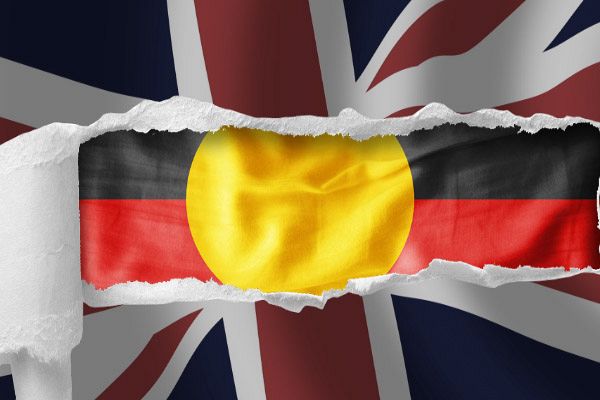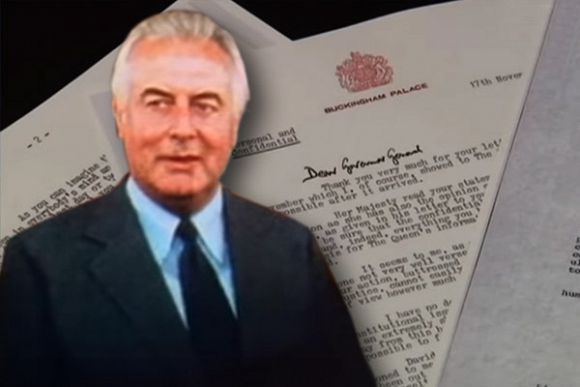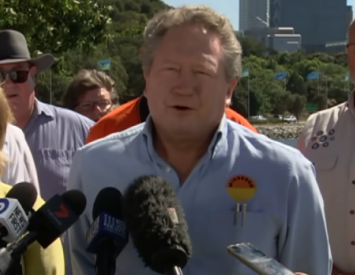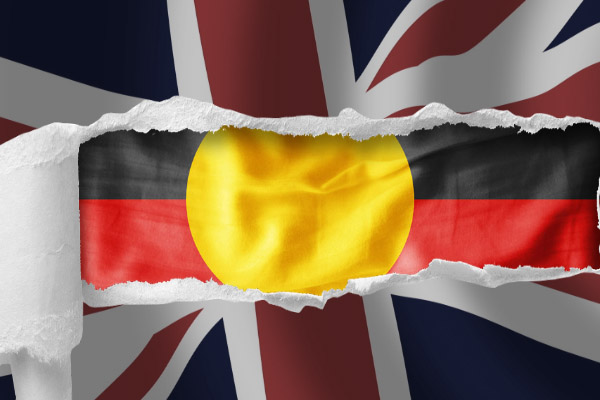If Australia is to become a republic, we must first address violence within our society, particularly towards our Indigenous people, writes Dr Robert Wood.
IF THERE IS yet another reason to support an Australian republic, it came recently with yet another death in custody.
Deaths in custody are the latest manifestation of a type of violence that extends back to the earliest days of Australian colonisation. There are other systemic forms of institutional violence including the ongoing removal of children, shorter life expectancy and the refusal to teach Indigenous languages. But deaths in custody stand as the most brutal expression of state-based violence. After all, custody means that one is in the care of the state and for a person to be killed through negligence or otherwise only suggests that something is incredibly wrong.
In that way, we return to parens patriae, the foundational legal concept upon which custody rests. It translates into “nation as parent” and so a death in custody is an abuse done to the vulnerable by the very ones deemed to protect them.
Deaths in custody go back to the very earliest days of interactions between White settlers and Indigenous people. In the colonial era, there were other forms of interaction including warfare, guerrilla fighting, poisoning, massacres, abduction, slavery and so on. There were, of course, attempts made at reconciling different world views between specific groups — say, French whalers and Noongar people. There were other remarkable individuals who were able to transcend their identities and reach across the aisle to collaborate on a chastened, if hopeful, vision of what might come to pass on a land people could share rather than fight over.
If massacres are what we recognise as the violent side of colonialism, their relative end after Coniston in 1928 was replaced by other manifestations in a relatively new nation. Here, readers will recognise the rise of the Stolen Generation as a historic paradigm. From massacre to the removal of children is but a step in the history of this continent, all directed as violence against Indigenous people with the full weight of the state behind it.
That brings us to now and deaths in custody, which have an established place in a tragic story. Readers will be familiar with reports and writing that details this issue, not least by The Guardian, which has also written the most on massacres from bygone eras. Where deaths in custody interest me is where it might point us towards a new frontier in a relationship between Australian law and the people it subjects.
Here, I am thinking of how we create a republic that is determined not to systemically abuse people in its care, where every death in custody is mourned rather than treated with apathy by authorities, where we say never again to this violence as it oppresses us all.
That kind of republic is very far from the minds of those who claim to be advocating for Australia’s future. The republic that is often talked about, especially by proponents from the Australian Republican Movement, seems simply to reject the British Crown and the Queen as our Head of State. The nation is working exactly as it was designed to right now — by and for mediocre white men with an axe to grind. It oppresses traditional owners most of all. We cannot simply update that for a new moment without thought for who is at the table, let alone in the room.
And so, we must remember that the republic’s mandate is to create a new type of society on this continent that looks after the most vulnerable more than any other. This is not only those in custody but the homeless, the mentally unwell, the survivors of domestic violence, the hungry and so on. The Australian state as it currently stands does not do this. It often is in thrall to the voting whims of middle-class people who are used to welfare benefits when they are actually relaxed and comfortable. It is a privilege to live here as a guest, but how can there be peace when the nation oppresses us as it currently stands?
A republic founded on non-violence stands to benefit us all. We must make a commitment and enshrine it in the highest laws of the land. More than that, we must continue to make a practice of the fact that we as citizens are unwilling to let violence be done to anyone here, especially the people whose country it always was and always will be.
Deaths in custody are a symptom of an unjust system and to rewrite the Constitution means being aware that this issue is fundamental to our democracy. It is about how we can act as citizens to ensure no one is added to a sober, grim, and tragic tally.
That means policing the police and convicting those responsible. That means providing adequate support services so people do not end up in custody to begin with. That means realigning our political ideals to speak with, from, to, for, of the traditional and customary laws that are still here and are still practised.
It is not beyond us to make this happen when it comes to a republic, but that means we need political will and visionary leadership as well as new representation at the table.
We need Indigenous voices speaking of how we rewrite the Constitution. We need community effort that addresses all the issues. We need to recognise and respect those who have died in custody to make sure it never happens again — not in this Australian state and not when the time comes that we are living in a republic on this continent.
And not afterwards when we transcend our republican sovereignty into something much deeper in the unreachable future.
Dr Robert Wood is chair of PEN Perth. A Malayali with East Indian Ocean connections, he lives on Noongar Country in Western Australia. The author of four books, Robert has held fellowships at the University of Pennsylvania and Columbia University.
Related Articles
- Another Queen’s Birthday — isn’t it time to break free?
- Don’t let the Kiwis beat us to an Australian republic
 This work is licensed under a Creative Commons Attribution-NonCommercial-NoDerivs 3.0 Australia License
This work is licensed under a Creative Commons Attribution-NonCommercial-NoDerivs 3.0 Australia License
Support independent journalism Subscribe to IA.














